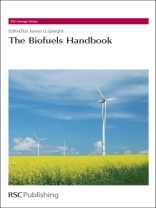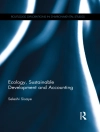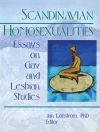Petroleum-based fuels are well-established products that have served industry and consumers for more than one hundred years. However petroleum, once considered inexhaustible, is now being depleted at a rapid rate. As the amount of available petroleum decreases, the need for alternative technologies to produce liquid fuels that could potentially help prolong the liquid fuels culture and mitigate the forthcoming effects of the shortage of transportation fuels is being sought. The dynamics are now coming into place for the establishment of a synthetic fuels industry; the processes for recovery of raw materials and processing options have to change to increase the efficiency of oil production and it is up to various levels of government not only to promote the establishment of such an industry but to recognise the need for available and variable technology. This timely handbook is written to assist the reader in understanding the options that available for the production of synthetic fuel from biological sources. Each chapter contains tables of the chemical and physical properties of the fuels and fuel sources. It is essential that the properties of such materials be presented in order to assist the researcher to understand the nature of the feedstocks as well as the nature of the products. If a product cannot be employed for its hope-for-use, it is not a desirable product and must be changed accordingly. Such plans can only be made when the properties of the original product are understood. The fuels considered include conventional and unconventional fuel sources; the production and properties of fuels from biomass, crops, wood, domestic and industrial waste and landfill gas.
Jadual kandungan
Conventional Fuel Sources; Unconventional Fuels Sources; Fuels from Biomass – Overview; Biorefinery; Biofuels; Production of Fuels from Crops; Properties of Fuels from Crops; Production of Fuels from Wood Sources; Properties of Fuels from Wood Sources; Production of Fuels from Domestic and Industrial Waste; Properties of Fuels from Domestic and Industrial Waste; Production of Fuels from Landfill; Uses of Landfill Gas; Production of Fuels from the Fischer-Tropsch Reaction; References; Glossary; Index
Mengenai Pengarang
Dr Speight has more than forty years of experience in areas associated with (1) the properties and recovery of reservoir fluids, including heavy oil, and tar sand bitumen, (2) refining conventional petroleum as well as heavy oil, tar sand bitumen, synthetic fuels, and biofuels, (3) the properties of fuels, synthetic fuels, and biofuels, (4) the properties, behavior, and processing of natural gas, including gas-to-liquids, (5) the properties and behavior of coal, including coal liquids, and (6) the properties and behavior of oil shale, including shale oil. Environmental effects and remediation technologies related to fossil fuel and synthetic fuel processing. He is the author of more than four hundred publications, reports, and presentations and more than thirty books and bibliographies related to fossil fuels, synthetic fuels, biofuels, fuels processing, and environmental issues. Dr Speight is visiting Professor at University of Utah, University of Trinidad and Tobago. Technical University of Denmark (Lyngby, Denmark), University of Petroleum (Beijing, China), University of Regina (Regina, Saskatchewan, Canada), and University of Akron (Akron, Ohio, USA).












